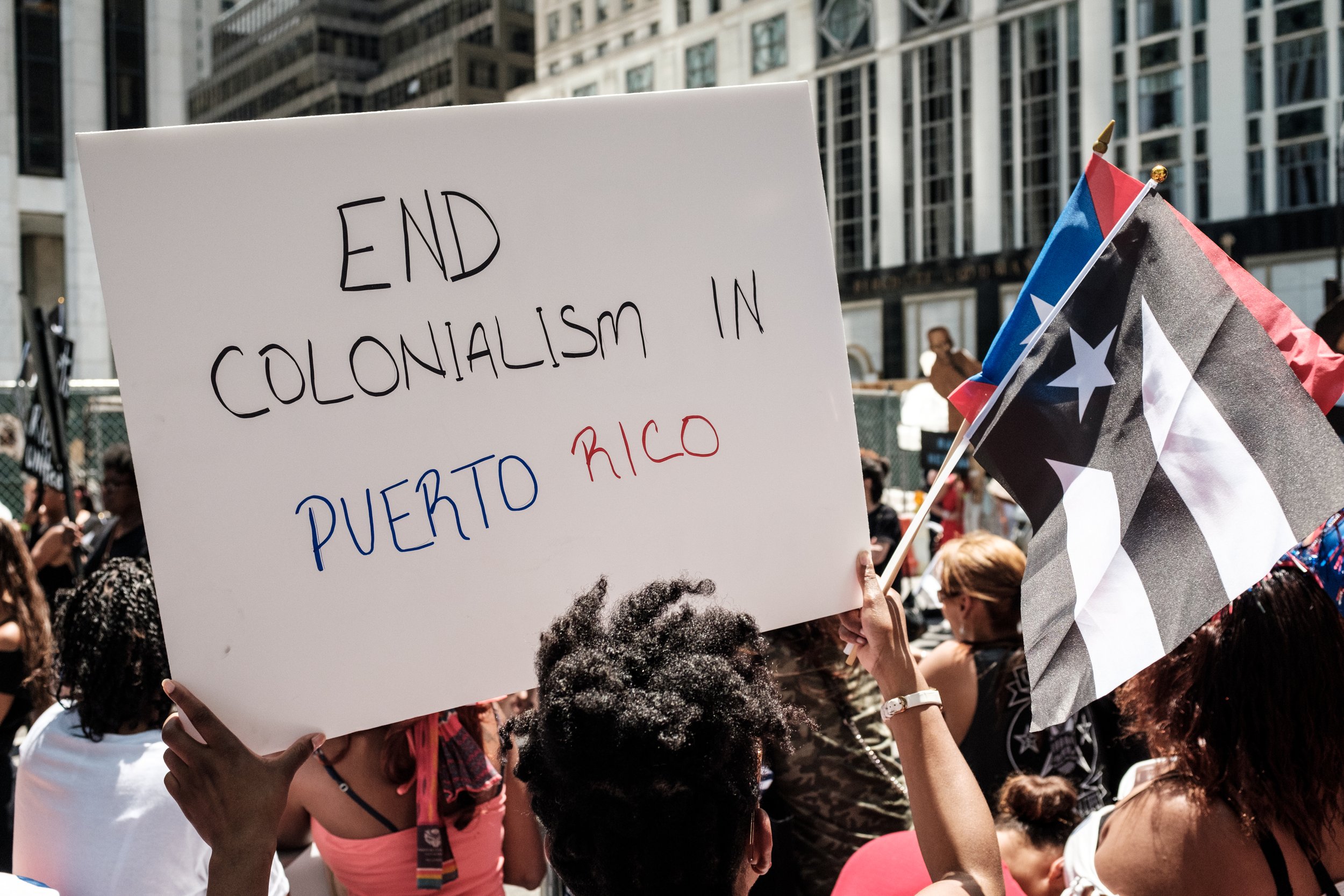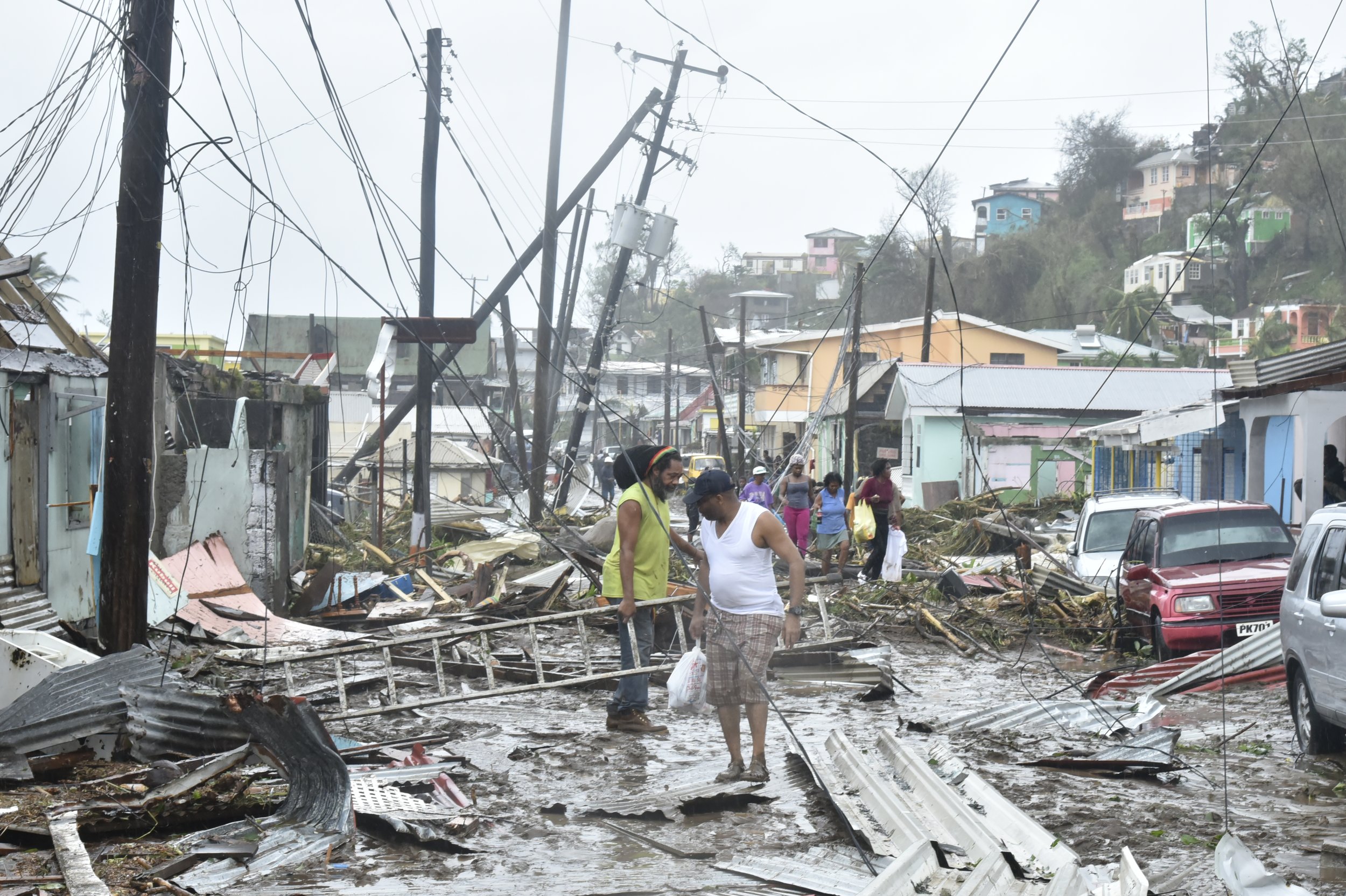by Aileen Flores-Calderon
“Lo que me pertenece a mí, se lo quedan ellos.”
The closing words of Bad Bunny’s song El Apagón are representative of the island of Puerto Rico’s centuries-long struggle with colonialism, occupation, and environmental justice. Environmental justice (EJ) can be defined as “the fair treatment and meaningful involvement of all people regardless of race, color, national origin, or income with respect to the development, implementation, and enforcement of environmental laws, regulations and policies” (The Environmental Protection Agency). Within this meaning of EJ, we tend to focus on the distribution of environmental burdens and the health concerns often associated with this. While this is an important concern, we must expand our understanding of environmental justice and injustice to address it effectively. If, as the Environmental Protection Agency’s (EPA) definition states, environmental justice requires meaningful involvement in environmental policy, then the experiences of colonized people (and those with no say in the systems that govern them) demonstrate the most extreme version of environmental injustice. Puerto Rico's status as a U.S. territory offers a clear example of why environmental justice cannot be achieved under colonialism and without self-determination, and that the tenants of EJ must center the experiences of colonized peoples.
To understand why environmental justice and anti-colonialism must go hand in hand, we must look back on the recent history of Puerto Rico. Since the beginning of the 20th century, the island has been under US rule. The U.S. gained it as a colony after winning the Spanish-American war, ending Spain’s 400-year control. This means that for half of a millennium, Puerto Rico has legally, economically, and militarily been under the control of external forces, and currently has no path towards independence or statehood. As a result, Puerto Ricans living on the island do not have the right to vote for President, do not have full voting representatives in Congress, and can exercise virtually no power over the decisions of their own land. And recently, Puerto Ricans have become displaced from their homes because of tax breaks that incentivize foreigners to move to the island.
A sign from the 2017 Puerto Rican Day parade in 2017. (Photo: ep_jhu/Flickr/cc).
This long legacy of colonial rule has had (and continues to have) an impact on the environmental resilience of the island, which we can clearly witness through the impact Hurricanes Maria and Irma had. Even though these hurricanes passed through the island in 2017, Puerto Ricans are still working to rebuild. Not only do the oppressive colonial practices and laws enacted on the island prevent it from building its own wealth and resources that would enable it to have some form of resilience and self-sufficiency when it comes to natural disasters, but because Puerto Rico is not technically a state they are entitled to less federal support and aid. This situation demonstrates how a lack of meaningful involvement has led to an extreme state of environmental injustice for Puerto Ricans.
The morning after Hurricane Maria. (Photo: Roosevelt Skerrit/Flickr/cc).
Using a broader understanding of environmental injustice can help us include the experiences of all oppressed peoples and communities and demands us to fight the root causes of this injustice. While we like to think colonialism is a problem of the past, there are countless communities globally that have been stripped of their sovereignty and other tools that are needed to build any means of self-sufficiency. Forced into dependency on foreign powers politically and economically, powers that have no knowledge or desire to maintain the well-being of the land, oppressed communities lack the rights and resources to live healthy and freely in their own homes. For the people of Puerto Rico, and all people living under occupation, it is not enough for us to think of these injustices as the result of discrimination. If we are committed to fighting EJ, we must also fight colonial practices and center the voices and experiences of the oppressed.




